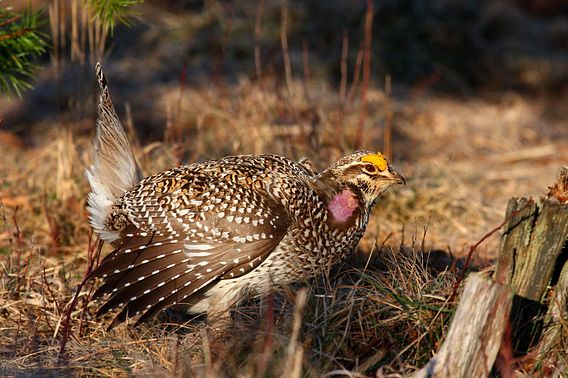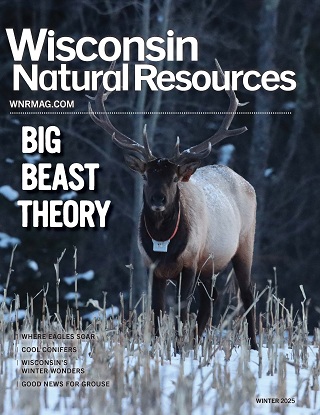Contact: Bob Hanson, DNR NW Sands Wildlife Biologist
Robert.Hanson@wisconsin.gov or 715-225-8597
Sharp-Tailed Grouse Hunting Season Remains Closed For 2023
Sharp-Tailed Grouse Population Showing Increases
 Data shows sharp-tailed grouse population numbers are up slightly, but concerns remain around the long-term viability of the population.
Photo credit: Wisconsin DNR
Data shows sharp-tailed grouse population numbers are up slightly, but concerns remain around the long-term viability of the population.
Photo credit: Wisconsin DNR
MADISON, Wis. – The Wisconsin Department of Natural Resources (DNR) today announced that although the spring population survey results indicate a slight increase, the sharp-tailed grouse hunting season remains closed for 2023. Permits and applications will not be available or accepted this year.
Each year, the sharp-tailed grouse advisory committee, consisting of interested conservation groups and DNR wildlife biologists, uses spring dancing ground surveys to evaluate the population’s size and make a recommendation about a hunting season. Based on the review of spring population data and lek distribution, concerns remain around the long-term viability of the sharp-tailed grouse population.
The recommendation to keep the sharp-tailed grouse hunting season closed follows the review of spring 2023 survey data, historical data trends and scientific models that indicate a potential marked decrease in population viability if hunting were to occur this fall. 2023 will be the fifth year the season has been closed.
Although fall permits will not be issued this year, sharp-tailed grouse will retain their status as a game species, per state law. The DNR is continuing to focus on habitat management efforts that will increase population levels across their primary range. Those passionate about Wisconsin's strong and historical tradition of sharp-tailed grouse hunting should be encouraged by the significant partnerships in the northwestern part of the state. Sharp-tailed grouse enthusiasts can watch for public involvement opportunities during the Sharp-tailed Grouse Management Plan update process, which is currently underway.
DNR staff are hopeful that the population will continue to respond positively to ongoing focused habitat management efforts to restore the pine barrens and young forest habitats that sharp-tailed grouse depend upon for survival.
More information on sharp-tailed grouse hunting and management in Wisconsin and where to watch for public involvement opportunities on the management plan is available on the DNR’s Sharp-tailed Grouse Hunting and Management webpage.

